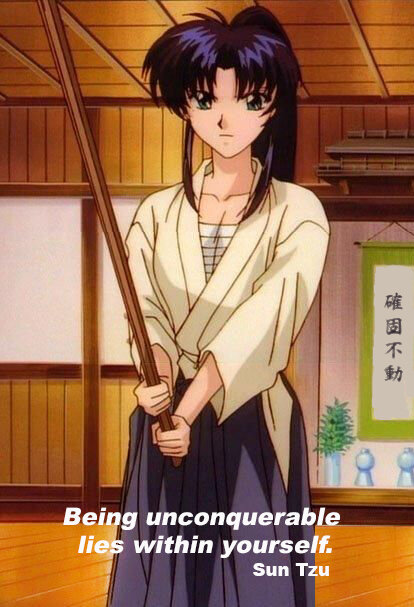Being invincible is a mindset. Because we achieved it or built it with our own two hands, it is easy to become over confident enough to think of ourselves as being invincible. Being invincible in Japanese is kakkofudo (確固不動). Kakko translates as “resolute” and fudo refers to the Buddhist deity, Fudo Myoo who is the “immovable protector” of buddhism. It is easy in budo to become hubris enough to think of ourselves as being invincible and this myth is proliferated by movies, cartoons and legends. This feeling of invincibility usually happens in the beginning of training as we develop ourselves physically and begin to dominate others. We can see this especially in Aikido as our partners take ukemi for us and allow us to throw them in order to practice the techniques. Furuya Sensei used to say, “The way one practices Aikido reflects who they are inside.” That is why training can sometimes be an amplifier for not only our greatest strengths, but weaker ones too. When training brings out our arrogant or weaker traits the Japanese say that it is as if we “Gave a devil an iron club” or Oni ni kanabo (鬼に金棒). Physical invincibility is an illusion and it is something that we conjure up in our minds because our bodies are not impervious or impenetrable as it only takes 16 pounds of pressure to fracture a bone. Luckily, the more we train, the more we realize that being invincible is not a state of body, but a state of mind and that is why Sun Tzu said, “Being unconquerable lies within yourself.” A warrior cries, feels pain and can be killed, but they always get up when they are knocked down. It is the will to get up not the ability to get up which makes us invincible and that is why being invincible is a mindset.
Today’s goal: We are all invincible, but which invincible are you?


















